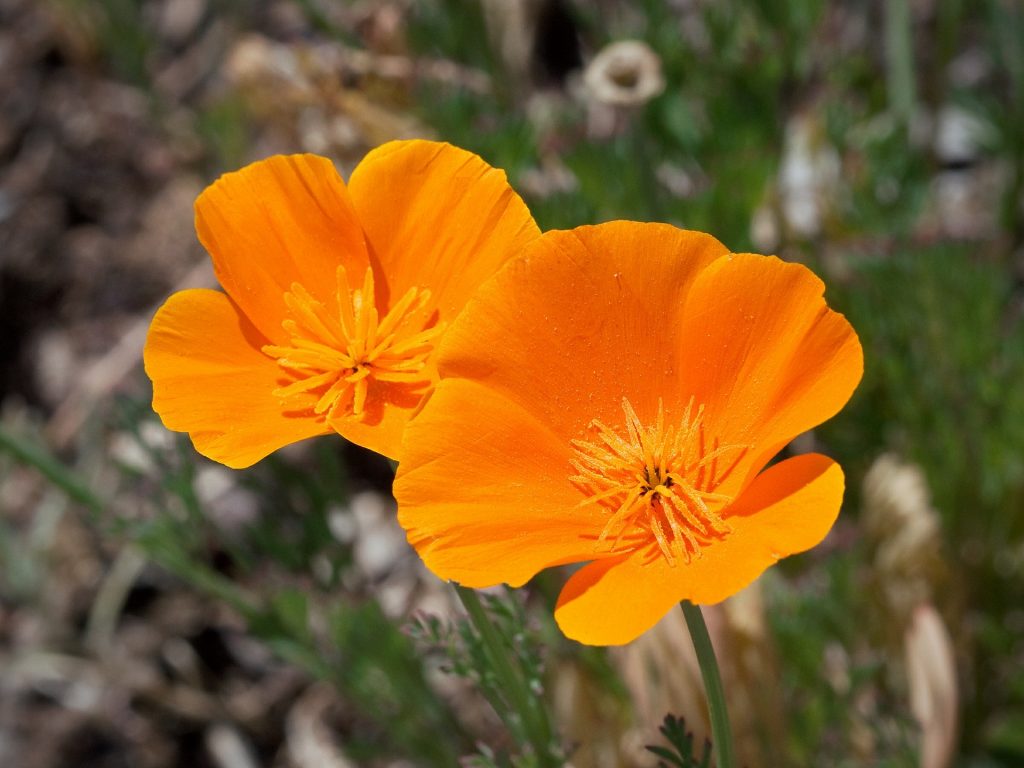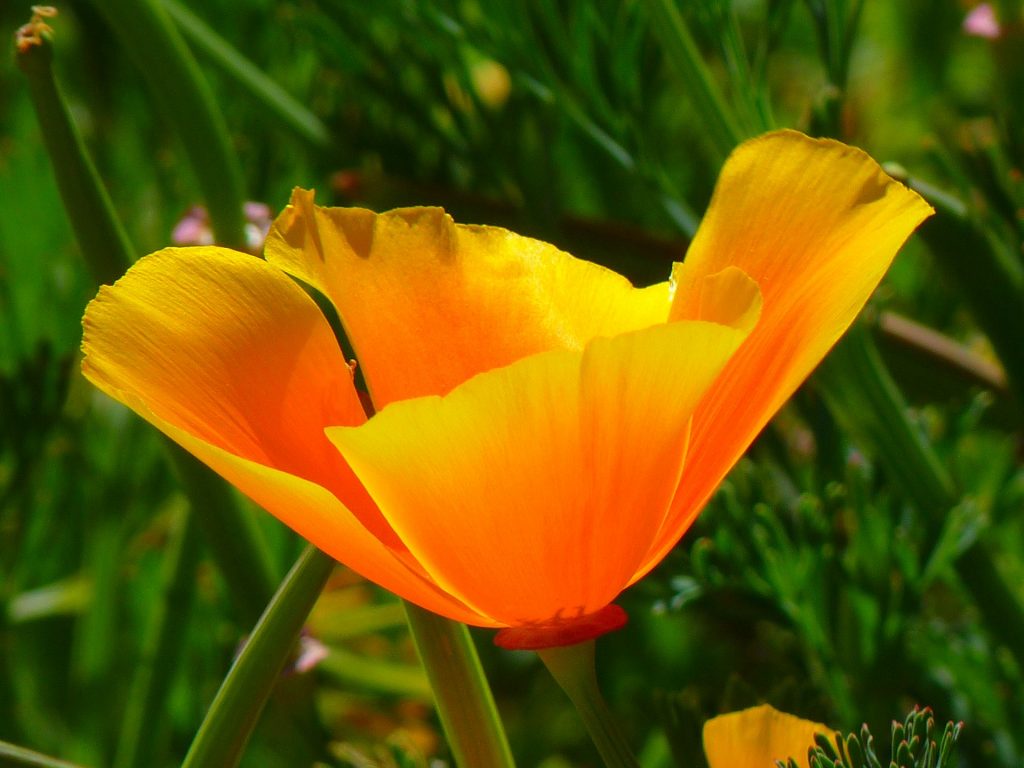 California poppy (Eschscholzia californica) is a perennial flowering plant that is native to areas of Central and North America. Californian poppy grows to a height of about 60 cm and is known by a number of different names including golden poppy, California sunlight and cup of gold. These names reflect the striking yellow to orange flowers of the plant. California poppy (Eschscholzia californica) and the opium poppy (Papaver somniferum) are both in the Papaveraceae family, but only the opium poppy contains opium. Rather than producing a high, californian poppy has been shown to normalise psychological function. Interestingly, in very low doses the opium poppy may also have anti-anxiety effects when taken as a whole extract. Only the purified and extracted opium is able to cause significant dulling of the consciousness and euphoria. Californian poppy has a traditional use as a medicinal herb by Native Americans. Evidence suggests that extracts of california poppy have both sedative and anxiolytic properties.
California poppy (Eschscholzia californica) is a perennial flowering plant that is native to areas of Central and North America. Californian poppy grows to a height of about 60 cm and is known by a number of different names including golden poppy, California sunlight and cup of gold. These names reflect the striking yellow to orange flowers of the plant. California poppy (Eschscholzia californica) and the opium poppy (Papaver somniferum) are both in the Papaveraceae family, but only the opium poppy contains opium. Rather than producing a high, californian poppy has been shown to normalise psychological function. Interestingly, in very low doses the opium poppy may also have anti-anxiety effects when taken as a whole extract. Only the purified and extracted opium is able to cause significant dulling of the consciousness and euphoria. Californian poppy has a traditional use as a medicinal herb by Native Americans. Evidence suggests that extracts of california poppy have both sedative and anxiolytic properties.

Californian Poppy (Eschscholzia californica), with its distinctive yellow to orange petals.
For example, in one study, the anxiolytic effects of california poppy were investigated in patients with mild to moderate anxiety. Subjects with mild to moderate anxiety were administered a tablet containing 20 mg of california poppy, 75 mg of hawthorn (Crataegus oxyacantha) and 75 mg of magnesium. Another group of patients with mild to moderate anxiety were administered a placebo tablet. The results of the study showed that those subjects taking the california poppy, hawthorne and magnesium treatment had significant reductions in their symptoms of anxiety compared to the placebo, indicating clinical improvement. No serious adverse effects were reported by the subjects in the study. Californian poppy, hawthorne and magnesium is currently used as a medicine in France under the trade name Sympathyl, where it is used in the treatment of anxiety and neurotic disorders. These results suggest that Sympathyl is an effective treatment for individuals with the generalised anxiety disorder (GAD).

Californian Poppy may exert anxiolytic effects through interaction with the benzodiazepine receptor in humans and animals. At high doses california poppy have have sedative effects, and at lower doses it may be effective against anxiety. A number of alkaloids have been detected in California poppy. The main alkaloids in the plant are thought to be eschscholtzine and californidine, with more minor alkaloids including O-methylcaryachine, protopine, aallocryptopine, sanguinarine and chelerytrine. These alkaloids may produce the anxiolytic effects of Californian poppy, but other constituents may contribute to this effect. However, there may be a large variation in the alkaloid content of different batches of the herb, with concentrations of alkaloids differing by 10-fold between plants. Californian poppy is contraindicated in pregnant women because of the alkaloids it contains may have detrimental effects on the release of the hormone oxytocin.
Animals studies have also investigated the effects of california poppy. For example, in one study, the effects of Californian poppy tea was investigated in mice. The results of the study showed that Californian poppy tea has a mild analgesic effect in the mice. The same study also presented evidence that phytochemicals within California poppy may have an affinity for the benzodiazepine receptor. This suggests that the mechanism of action of california poppy may be through activation of the GABA system, in a similar way to the benzodiazepine group of anxiolytic drugs. In another study, the same authors showed that Californian poppy exhibited dose-dependent sedative properties in mice. However, at lower doses the same extract conferred a mild anxiolytic effect on the mice. This may confirm that phytochemicals within the plant are indeed activating the benzodiazepine receptor, as benzodiazepines are well known to sedative and anxiolytic properties at high and low doses, respectively.
Eat Well, Stay Healthy, Protect Yourself
RdB
